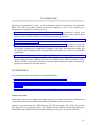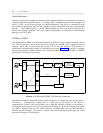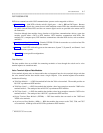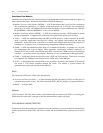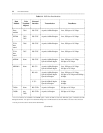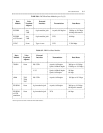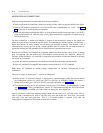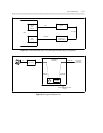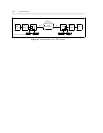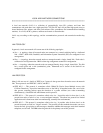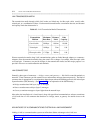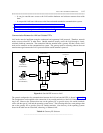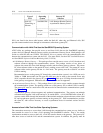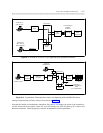8-10 DTE CONNECTIONS
_ ___________________________________________________________________________________________________________________________
_ ___________________________________________________________________________________________________________________________
_ ___________________________________________________________________________________________________________________________
MODEM POOLING CONNECTIONS
Modem pooling connections are used under the following conditions:
• When an off-premises connection is made over analog facilities, while on-premises facilities are digital.
• When an off-premises connection is over a DS1 facility that is administered as a "voice." (See figure
8-5 for this type of modem pooling arrangement.)
• When the originating and destination DTEs are using different transmission modes (that is, one DTE is
using analog transmission, while the other is using digital transmission), regardless of whether they are
both at the same site.
For these connections, a modem pool member is inserted in the transmission stream at the switch port
where the signal changes between analog and digital. Each modem pool member includes a digital port, a
digital data module, an analog modem, and an analog port arranged in tandem. With Generic 1 and 2
communications systems, you can assign a bearer capability class to both the line and trunk such that an
appropriate modem pool will automatically be inserted into the communications stream.
Both D-lead and Hayes AT command set compatible modems and data modules can be used in a modem
pool. On outgoing calls, the modem pool’s data module controls the data call’s initiation. During call
initiation, D-lead and Hayes AT command set compatible data modules use different methods in directing
the modem to go off-hook:
• D-lead data modules momentarily close the D-lead between the data module and the modem.
• Hayes AT command set compatible data modules send the modem an "AT D" command.
Note: Hayes AT command set modem pooling configurations are currently recommended for new
installations.
There are two types of modem pools — external and integrated:
• On the System 75, System 85, Generic 1, and Generic 2 communications system, the external modem
pool arrangement consists of a DCP port (TN754 or SN270), an MTDM or 7400A data module, a
modem, and an analog port (TN742 or SN243) connected sequentially (see figure 8-3).
• The integrated modem pool is only available on the System 75 and Generic 1 communications system
(see figure 8-4). On these communications systems, it is implemented through the TN758 port board.
The board emulates an MTDM, a 212AR modem, an analog port, and a digital port.
Special care must be taken when modem pooling is used with alternating voice and data trunks. That is,
when a trunk is administered as AVD, it can carry only voice and digital data. Non-AVD, voice trunks
carry only voice and voice-grade data. This is so if modem pooling is required in the link, the
analog/digital transformations will be both accurate and consistent.




